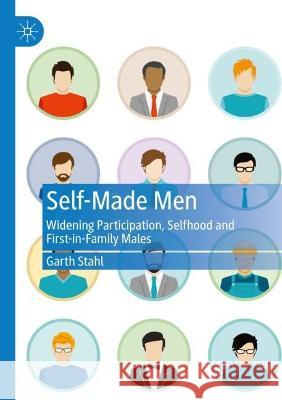Self-Made Men » książka
topmenu
Self-Made Men
ISBN-13: 9783031079566 / Angielski / Miękka / 2023
Self-Made Men
ISBN-13: 9783031079566 / Angielski / Miękka / 2023
cena 523,30
(netto: 498,38 VAT: 5%)
Najniższa cena z 30 dni: 501,19
(netto: 498,38 VAT: 5%)
Najniższa cena z 30 dni: 501,19
Termin realizacji zamówienia:
ok. 16-18 dni roboczych.
ok. 16-18 dni roboczych.
Darmowa dostawa!
This book explores how boys from low-socioeconomic status backgrounds disengage from their education, and are resultantly severely underrepresented in post-compulsory education. For those who attend university, many will be first-in-their-family. As first-in-family students, they may encounter significant barriers which may limit their participation in university life and their acquisition of social and cultural capital. Drawing on a longitudinal study of young Australian men pursuing higher education, the book provides the first detailed account of socially mobile working-class masculinities. Investigating the experiences of these young men, this book analyses their acclimatisation to new learning environments as well as their changing subjectivities. The monograph draws on various sociological theories to analyse empirical data and make practical recommendations which will drive innovation in widening participation initiatives internationally. This book will be of interest to scholars interested in widening participation, transitions, social mobility and Critical Studies of Men and Masculinities.











